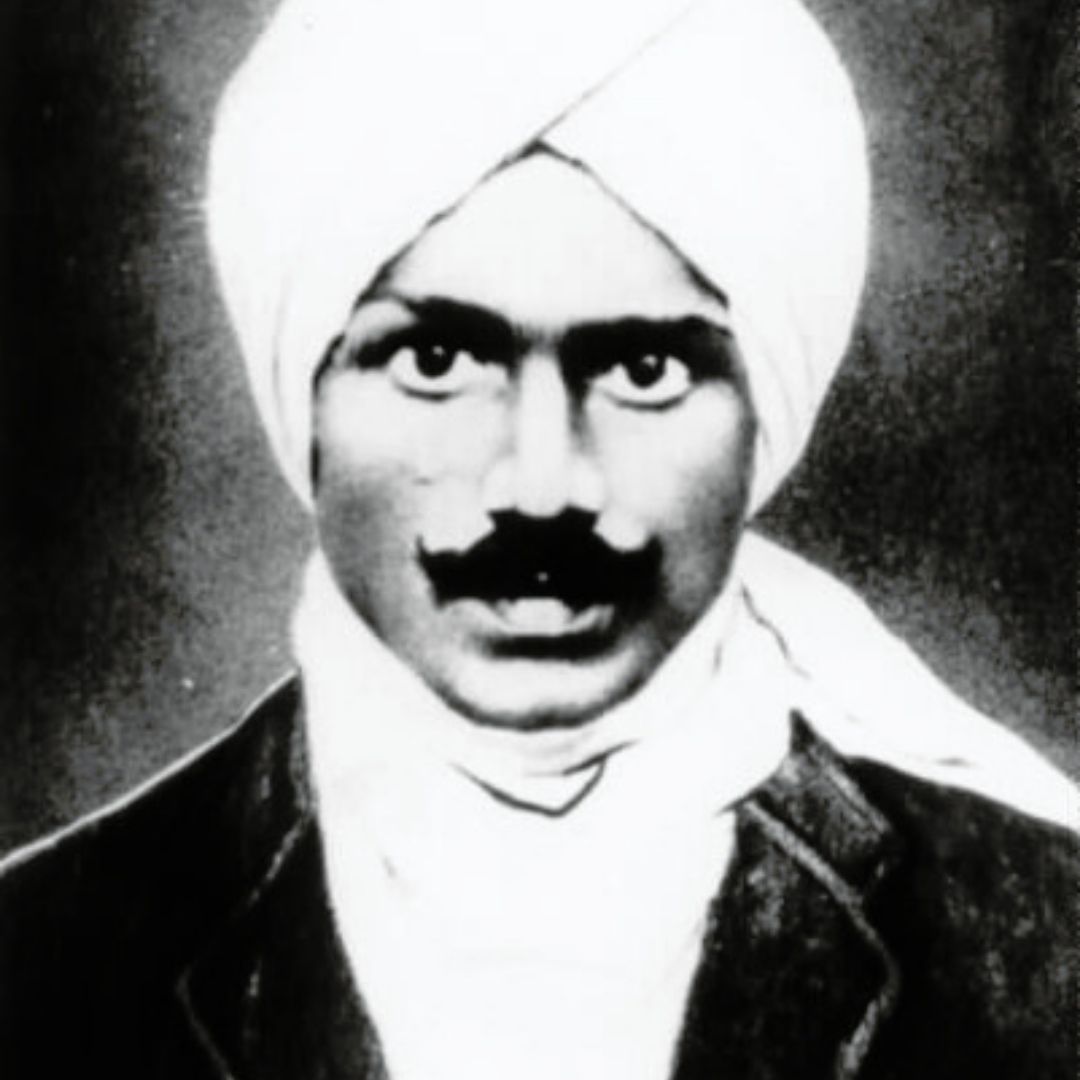
Image Credits: Wikimedia
Remembering Subramania Bharathi, The Tamil Poet Who Became Symbol Of National Unity
Writer: Tashafi Nazir
For most people, journalism sounds hectic and chaotic. For her, it's a passion she has been chasing for years. With an extensive media background, Tashafi believes in putting efforts on presenting a simple incident in the most interesting way.
India, 11 Dec 2021 7:47 AM GMT
Editor : Palak Agrawal |
Palak a journalism graduate believes in simplifying the complicated and writing about the extraordinary lives of ordinary people. She calls herself a " hodophile" or in layman words- a person who loves to travel.
Creatives : Tashafi Nazir
For most people, journalism sounds hectic and chaotic. For her, it's a passion she has been chasing for years. With an extensive media background, Tashafi believes in putting efforts on presenting a simple incident in the most interesting way.
Born on December 11, 1882, Bharathi was not only a pioneer of women empowerment and a symbol of national integration but was also a Tamil poet, known as 'Mahakavi Bharatiya' whose patriotic poems inspired the masses during the Indian freedom struggle.
A teacher once asked a student, "We have heard, you are Kalmegh. Recite a poem." The student immediately replied, "Sir, Kalmegh showers on his own and not on orders."
The student was none other than Subramania Bharathi, a few verses from one of his poems were recited by Prime Minister Narendra Modi at the Red Fort on August 15, 2018.
An Exceptional Poet
Bharathi was born December 11, 1882 in the village of Ettayapuram in Tamil Nadu's Thoothukudi district. Many people in South India had joined the freedom struggle after being influenced by his writings. He was not only a pioneer of women empowerment and a symbol of national integration but was also a Tamil poet, known as 'Mahakavi Bharatiya' whose patriotic poems inspired the masses during the Indian freedom struggle. In 1908, an arrest warrant was issued against Bharathi by the British government and caused him to move to Puducherry, where he lived until 1918.
It is a rare feat that the king of Ettaya Puram court awarded him the title 'Bharathi' at the age of just 11. After this, he was called by the name Subramania Bharathi, according to PIB.
The new style and melody of expressions, simple words, local idioms and songs in his poetry took Tamil literature to an altogether different pedestal. He was also a fighter, social reformer and journalist who was involved in the Indian freedom struggle and took great care of the poor and downtrodden.
Supporter Of Women Empowerment
He considered Swami Vivekanda's disciple Sister Nivedita as his mentor, and he turned into an even stronger supporter of women freedom and empowerment after meeting her.
Bharathi, who had a good grasp of several languages, including Tamil, English, French, Sanskrit, Hindi and Telugu, was announced as the editor of Chakravartini, whose goal was to empower women.
Bharathi's poetry expressed a progressive, reformist ideal. His imagery and the vigour of his verse were a forerunner to modern Tamil poetry in various aspects. He was the forerunner of poetry that had a mix of classical and contemporary elements. He had a prodigious output penning thousands of verses on diverse topics like Indian Nationalism, love songs, songs of nature, children's songs, glory of the Tamil language, and odes to freedom fighters like Gandhi, Tilak and Lajpat Rai.
Millions of Tamil readers have read his insightful similes. He was well-versed in different languages and translated speeches of Indian National reform leaders like Sri Aurobindo, Bal Gangadhar Tilak and Swami Vivekananda.
Some litterateurs opine that Bharathi's Panchali Sapatham, based on the story of Panchali (Draupadi), is also an ode to the motherland. The Pandavas are referred to as Indians, the Kauravas as the Britishers and the Kurukshetra war of Mahabharat is the Indian freedom movement. It is undoubtedly ascribed to the rise of womanhood in society.
"We make Dresses from Silk and Cotton
In quantities as large as mountains
They bring a lot of wealth
The traders around the world,
to whom we give it"
Against Caste System
He is known to have said, "Even if Indians are divided, they are children of one Mother, where is the need for foreigners to interfere?" During 1910–1920, he wrote about a new and free India where no caste system existed. He talks of building up the country's defence, ships sailing the high seas, success in manufacturing and universal education.
Bharathi also wanted to elimiate starvation. He sang, "Thani oru manithanakku unavu illayenil intha jagaththinai azhithiduvom" translated as " If a single man suffers from starvation, we will destroy the entire world".
Subramania Bharathi died on September 11, 1921.
Also Read: A Century Apart: Farmer Protests Brought Back Memories Of Muzara Movement
 All section
All section














